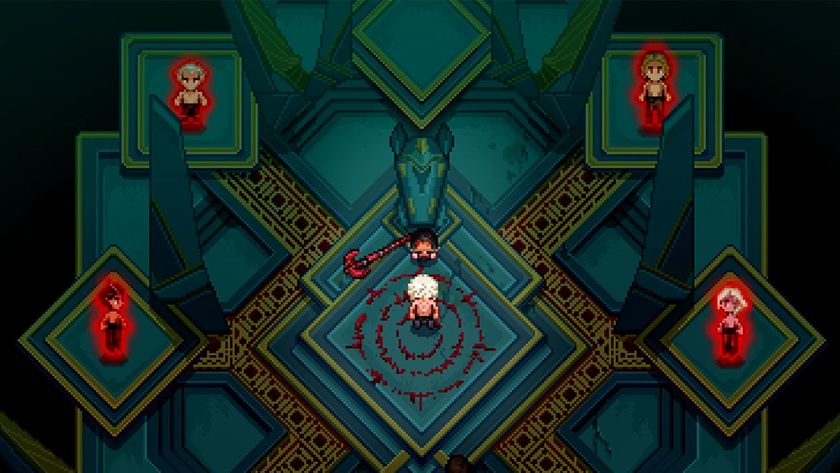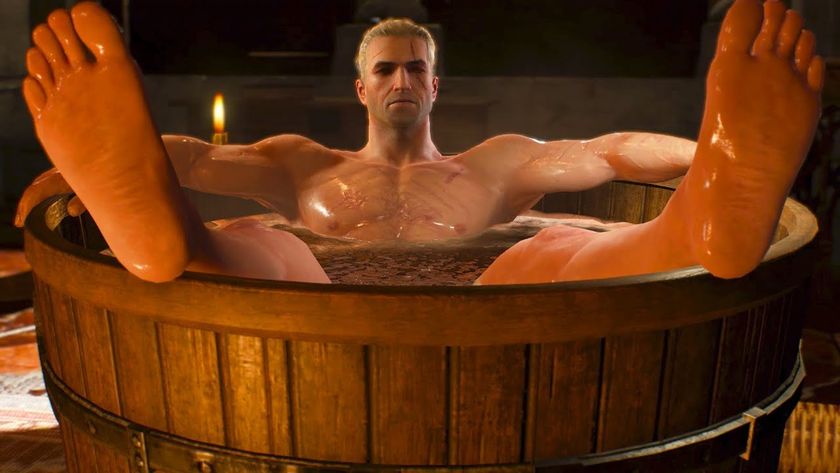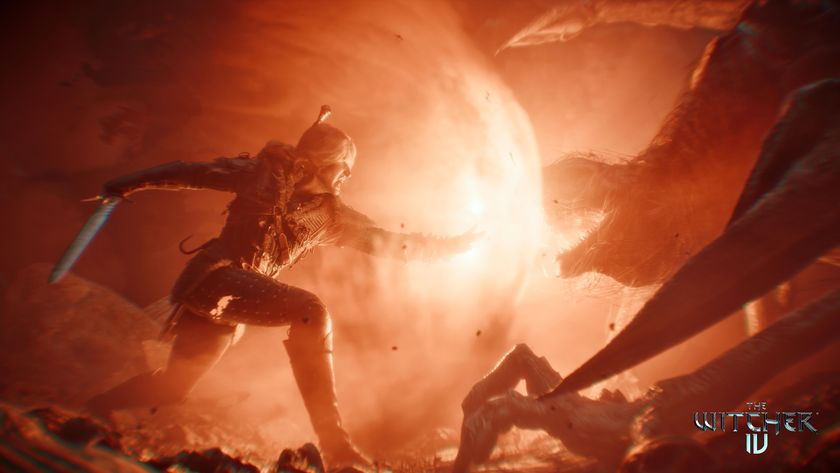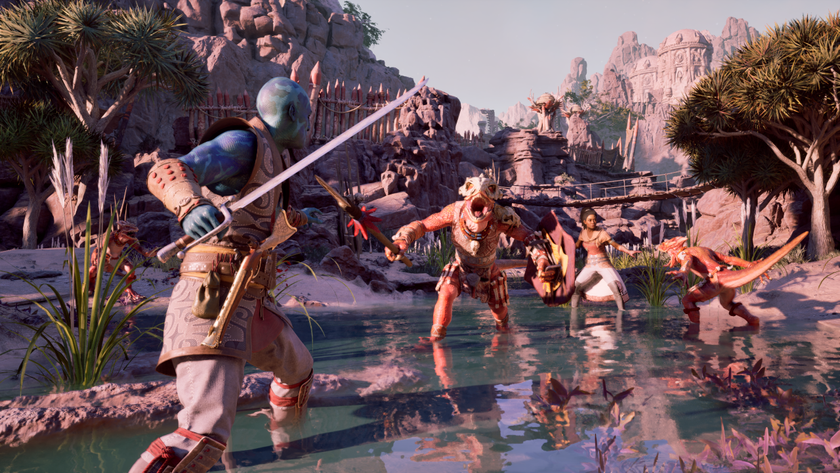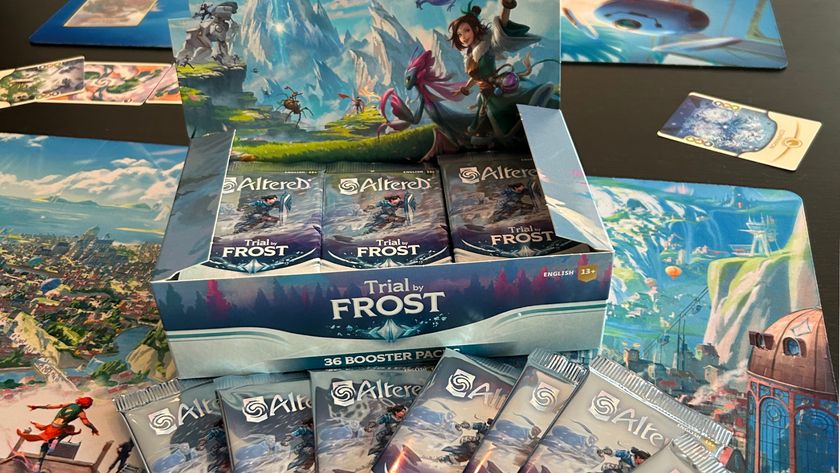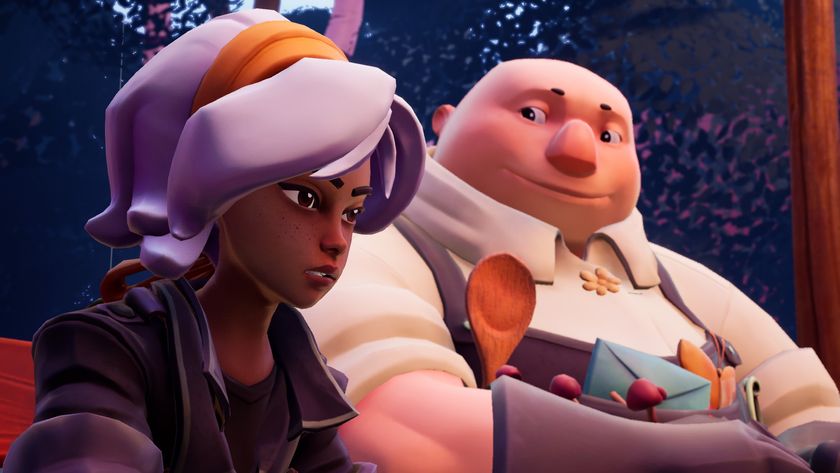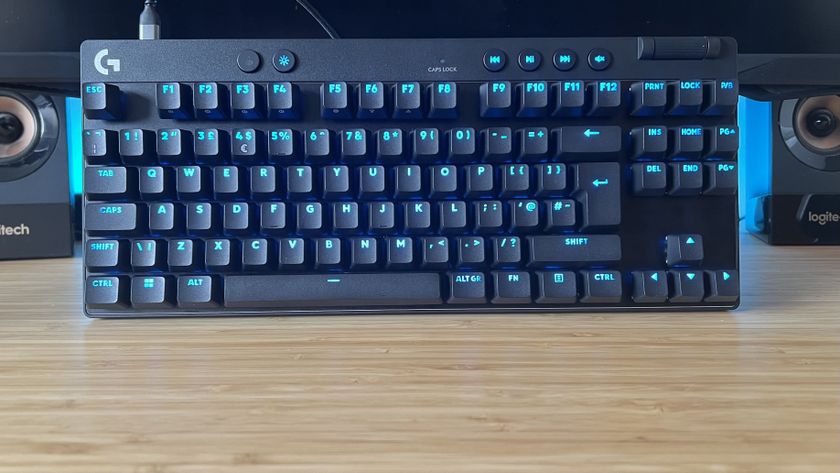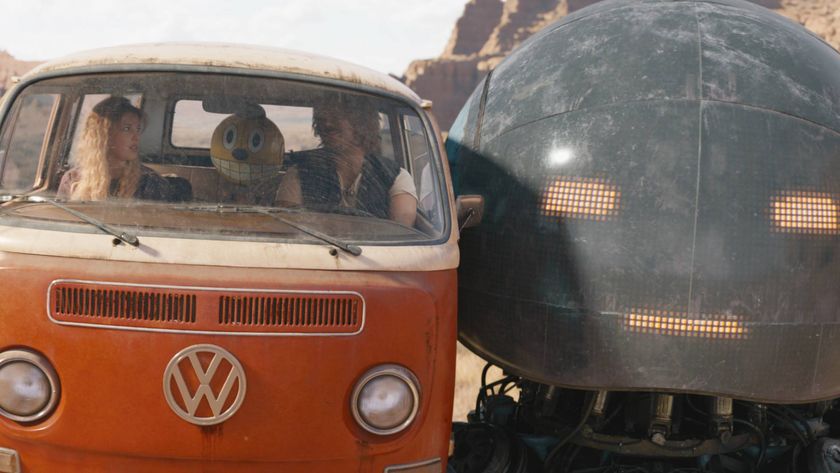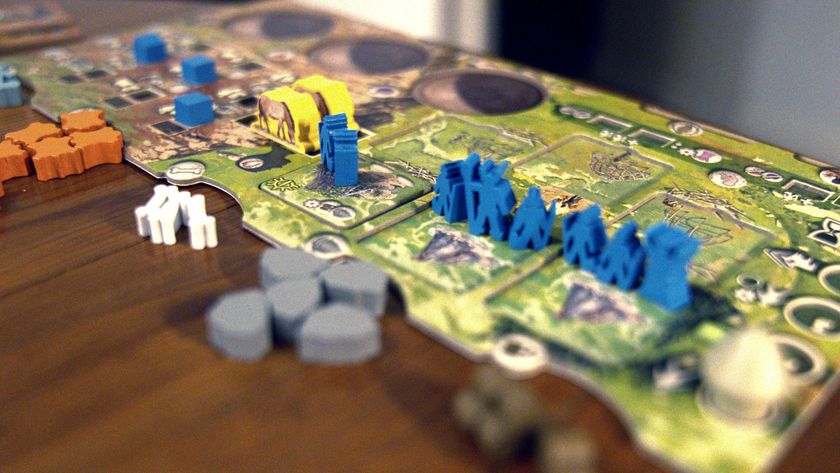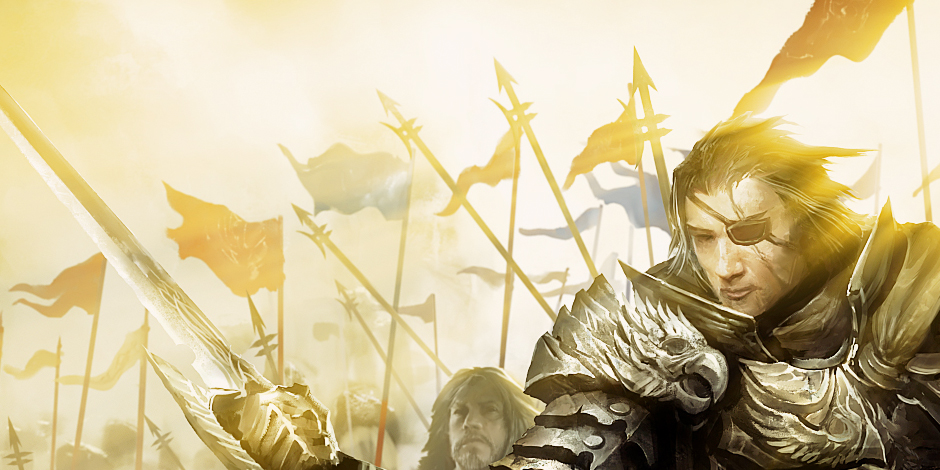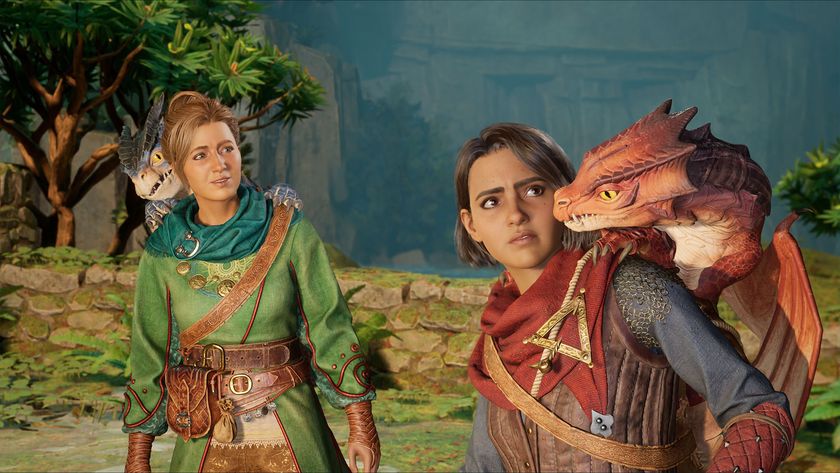12DOVE Verdict
Pros
- +
The dynamic event system
- +
Action-based combat
- +
The lack of a monthly fee
Cons
- -
A steep learning curve
- -
Bugs and glitches
- -
Random missing features
Why you can trust 12DOVE
The first few hours of Guild Wars 2 are going to confuse you, but it’s not because the game is actually confusing. Guild Wars 2 is similar enough to other massively-multiplayer online games to lull you into a false sense of familiarity, which becomes problematic when things diverge--fairly quickly--into unfamiliar territory. Character creation is pretty much the same as every other MMO you’ve played, the opening areas are familiar, and then, suddenly, you’re tossed into an open world that doesn’t act like any open world in any other game. And you’re confused.
But it’s there, in those confounding opening hours, that Guild Wars 2’s greatest success lies: In ignoring standard genre tropes and formalities in favor of chasing superiority. For veteran MMO gamers, this means relearning basic mechanics you thought you knew well. And for the rest, Guild Wars 2 presents a refined online experience that frees the player to engage with the game world in the best way yet.
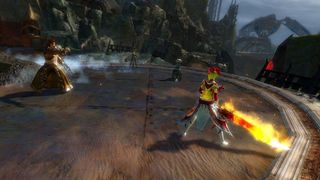
Nearly every element of the MMO genre has been greatly modified. Mail can be sent and opened anywhere, there’s no competition for crafting materials scattered in the world, and though there’s no traditional trading (an oversight you’ll likely become frustrated by), being able to access the in-game trading post from anywhere is a nice touch. But even more important than basic quality-of-life upgrades are the leaps and bounds ArenaNet made to questing.
With exception to story missions, which aren’t all that interesting, basic quests in their traditional sense are gone, replaced with open-world events that can be completed either alone or with other players in the area. Since everyone who contributes to a kill or an event gets experience regardless of their group (and level, since Guild Wars 2 downscales you to the appropriate level for every location), players naturally work together to complete these events, taking down centaur armies or defeating rampaging dragons.
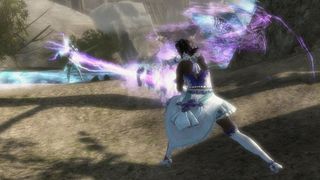
And when you fight these battles, both on the surface and underwater, they’ll be more enjoyable, thanks to action-based combat. Guild Wars 2’s battles are not as twitch-based as a typical action game, but the emphasis on movement and dodging makes encounters more enjoyable, and makes each weapon skill more important.
Skills are another area that diverge from the norm, with most being granted mid-way through your 100+ hour trek to level 80. What’s more, half are attached to the type of weapon you’re using, and change depending on what you currently have equipped in each hand. What’s more, only a dozen or so abilities are active at any given time, eschewing the complexity of having a screen half-full of square icons representing marginally dissimilar abilities.

Though this might seem oversimplified, you’ll find that different combinations can lead to drastically different builds, even within the same class and especially when other factors--like traits and items--are factored in. By changing up a few skills, you can, say, focus your Necromancer on area-of-effect spells or damage-over-time abilities, or turn your Thief from a ranged assassin to a stealthy ninja.
The abandonment of the traditional MMO “holy trinity” is a big deal, removing reliance on healers or tanks and allowing every class to be fun in and of itself. Each class has a heal, and any player can resurrect another at any time--you're even able to resurrect yourself, as long as you take down an enemy in the fleeting seconds between being knocked down and dying.

These mechanics, in conjunction with group events, create a strange dynamic that sets the community of Guild Wars 2 apart from those of other MMOs. Most players are surprisingly helpful, and people are almost always willing to save you when you’re in need or to resurrect you when you’ve fallen. Players will often go far out of their way to help you even when you’re not in their group, because everyone benefits from there being more people in the world. The flip side of this, however, is that there’s far less traditional grouping, making for a more social game that’s remarkably impersonal.
It’s a trade-off you’ll be willing to make when you see what it allows you to accomplish. Players aren’t encumbered by the formalities of grouping or the fear of losing out on experience by helping nearby players, which creates massive armies of players capable of taking down even the toughest opponents. Public events aren’t new to the genre, but the ones found in Guild Wars 2 are the best in their class, rewarding you for your contributions in the giant battles you’ll literally walk into in the open world. They’re wonderful, and every bit as massive as we’ve seen in any other MMO. Better yet, they happen so frequently that you’ll be able to experience raid-sized bosses and 50+ person battles on an hourly basis.

Because leveling is so fun, and you’re allowed to stay in a zone far after you’ve outleveled its content, the game becomes more about completion than blindly racing toward the level cap. Guild Wars 2 breaks down all of the important objectives in any given zone--skill point challenges, discoverable vistas (which often require precarious platforming to uncover), points of interest, and area events--and tracks how close you are to completing it all.
Before long, you’ll find that “100%ing” each area on the map can become as addictive as anything found in any other MMO. You’re given achievements, in-game items, and experience for scouring the zone and uncovering its every secret. And since the content you’re finding is so enjoyable, it never feels like a chore. Typically, MMOs acknowledge completionism--Guild Wars 2 rewards it. There’s still a fairly traditional MMO end-game, with harder versions of the game’s dungeons and content gated off for any players under level 80, but it takes a backseat to simply wanting to do everything. Well, and to kill more people in player-versus-player combat.

PVP is actually available from the start, and comes in two distinctly different flavors. The first is called “The Mists,” which is a competitive mode where all players are stripped of their gear and leveled to 80. This puts everyone, regardless of level or items, on an even playing field, making for a more clean, competitive system. At the same time, it also works against it by making it so gated off that it feels almost like a separate game, as rewards earned in The Mists stay in The Mists.
The other mode is World-versus-World-versus-World, which pits three servers against each other in a massive, nonstop battle. It, too, feels like a separate game, but for the better--WvWvW takes place on a different persistent map, featuring dozens of capturable bases and castles to attack and defend. It sometimes gets laggy, what with hundreds of players on screen at any given time, but it’s a ton of fun, giving hardcore PVP players a 24-7 warzone that rewards coordinating with massive armadas of players. Loot, experience, and even server-wide buffs are rewards for success.
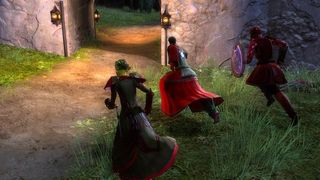
Many predicted that Guild Wars 2 would lack content because it forgoes a monthly subscription fee, but this couldn’t be further from the truth--in fact, it’s actually a better game for it. There are no mechanics built solely to keep you playing once you’ve played enough, or to lock content away to force players to constantly remake new characters. Just about everything is available on one playthrough, making a more complete game that’s less stingy with its content. There’s also a cash shop for cosmetic items and boosts, but besides charging for keys used to unlock lootable chests (that give stuff you can buy in the cash shop), and it's arguably beneficial, but not at all detrimental.
Guild Wars 2 is everything a massively-multiplayer online RPG should be. It’s original, massive in scope, and wonderfully social, removing many of the gates that held back the genre in the past. Being able to play with friends regardless of level or class is a gigantic leap forward, and one that, when mixed in with all of the other innovations in the genre, make Guild Wars 2 one of the best MMOs currently available.
More info
| Genre | Role Playing |
| Description | After all the expansions, it's about time for a true sequel to the addictive MMO. Expect more dungeons, items, a large open-world, and no subscription fees. |
| Franchise name | Guild Wars |
| Platform | "PC" |
| US censor rating | "Teen" |
| UK censor rating | "" |
| Alternative names | "Guild Wars II" |
| Release date | 1 January 1970 (US), 1 January 1970 (UK) |
Hollander Cooper was the Lead Features Editor of 12DOVE between 2011 and 2014. After that lengthy stint managing GR's editorial calendar he moved behind the curtain and into the video game industry itself, working as social media manager for EA and as a communications lead at Riot Games. Hollander is currently stationed at Apple as an organic social lead for the App Store and Apple Arcade.
